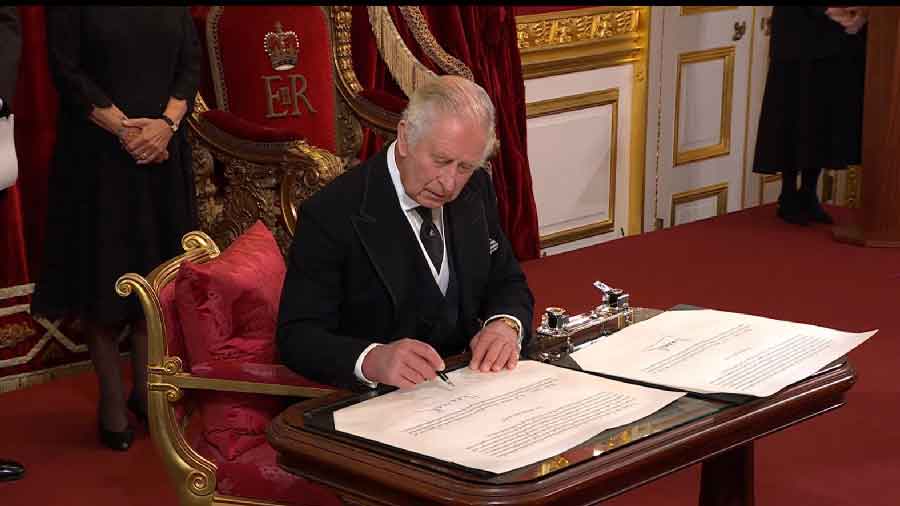He could have chosen from any of his four names -- Charles, Philip, Arthur, George. But he chose to be King Charles III. His mother had been born Elizabeth Alexandra Mary and she had chosen to be Elizabeth II. Like Elizabeth I, she too was not expected to ascend the throne but she did. And she ruled long years — Elizabeth I’s rule lasted 45 years, while Elizabeth II’s reign lasted 70. The reigns of the two Charleses differed from the Elizabeths’ in more than duration. The new king of England may well have taken his name, but it was Diana Spencer who was a descendant of Charles II. The same Charles II who had been a king in waiting too, although his circumstances differed widely from this Charles who has been Prince of Wales for 64 years of his life. After 10 years as a fugitive, when Charles II ascended the throne in 1660, it was not just about him reclaiming his kingship; monarchy itself was being restored in England.
The Crown
It is for this reason that he planned a grander than usual two-day coronation ceremony. He set up a committee, had members study all previous coronations and prepare a report. He personally decided what was to stay and what was to be left out. The old crown jewels had been destroyed by Cromwell --- the jewels sold and the gold melted into coins --- so Charles II spent £ 30,000 on new ones. The sovereign orb alone was made of 400 rose-cut diamonds. A grand procession was organised and coronation memorabilia made ready. Attendance was a concern, given the monarchy’s interrupted connect with its subjects, so writs for attendance were sent out a month ahead of the event. For his part, Charles III wants a modest ceremony; one that will reflect “modern day Britain”.
All the king's men
According to the British press, apart from not-very-high popularity ratings and expected campaigns from within the Commonwealth to become republics, Charles III is faced with the “potential breakup of the United Kingdom”. There is Northern Ireland and the whole Scottish independence issue. Speaking of Scotland, before his grand coronation of 1661, Charles II had been crowned in Scone, Scotland, in 1651. It had been the other way round for his father. Charles I had been crowned in Westminster first and later in Scotland, on public demand. He believed that kingship was a divine right, and believing so, ended up discounting the common man’s might. The Anglican coronation at Edinburgh annoyed the Scottish Presbyterians and the occasion led to the beginning of the civil wars. What is in a name you might say. Very little, when it comes to roses, perhaps, but for monarchs…










